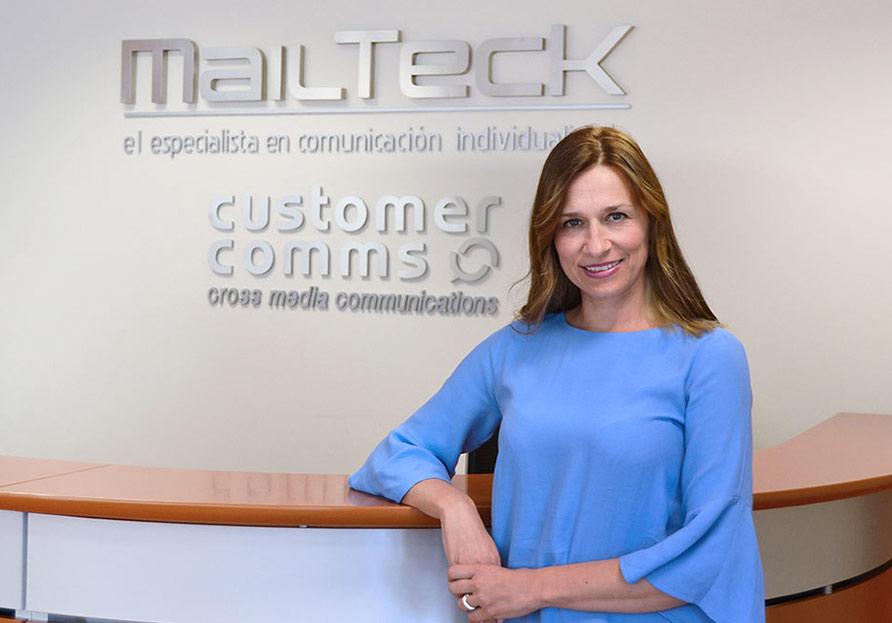
Raquel García Jabardo joins the MailTecK & Customer Comms group as Sales Manager for Certified Communications and Electronic Signatures. Raquel has worked for companies such as Lleida.net or Quirónprevención leading sales and commercial departments. With a degree in Law, Raquel has a great knowledge of the legal area of legal communications and, more specifically, in the digital field. He answers the main questions about electronic signatures and certified communications.
Digital transformation and cybersecurity are two issues that concern companies today. What role do electronic certified communications play in all this?
Your role is paramount. This type of solution allows companies two things: immediacy in communication to the recipient and traceability of everything that has happened. A large number of companies are betting on robust, secure and usable solutions that offer all the legal guarantees. We can take custody of all this documentation that guarantees legal validity, channel it through our platforms and retrieve it in the event of a cyber-attack.
With regard to the digital plane, what problem does the handwritten signature face?
Lack of legal certainty in the processing. Many of the contracts are returned by e-mail with a scanned signature. This has no legal guarantee whatsoever. Another problem is the lack of usability, which slows down processes. For example, I receive a contract at my home address and I have to send all the sheets signed. We are talking about contracts of many pages, which I have to put in an envelope, take it to the mailbox, post it, etc. Added to this is the absence of technological innovation in the company.
Immediacy, cost savings and process simplification. What other advantages does the use of certified electronic communications bring to an organization?
First of all, usability, since these are intuitive, easy-to-use solutions, which enhances the customer experience. Secondly, mobility, which allows you to view that document in a web environment and sign it from your own mobile device. Thirdly, adaptability, since the company can “customize” and adapt the process according to its branding. And lastly, traceability. For me it is one of the most important, since this type of solution allows to record all the evidence and the technical trace of the process.
What is the position of paper in the certified communication process?
Paper continues to be a fundamental element, because if we guarantee omnichannel, we will always have a segment of customers to whom we will provide coverage on physical media. Customer Comms provides this added value, bringing together in a single provider, not only certified communications on electronic media, but also on physical media.
What guarantees does the electronic signature offer to a company for legal purposes?</3h>
Electronic signatures are regulated under the European Union’s eIDAS regulation. There are three types of electronic signature regulated by the regulations: simple, advanced and qualified electronic signature. Customer Comms proposes a solution through eSignLive that meets the requirements of any electronic signature. In addition, we are a trusted service provider endorsed by the Ministry of Energy, Tourism and Digital Agenda; and we are certified by the ISO 27001 standard, which guarantees security in the processing of our clients’ data.
How has the use of electronic signatures in commercial transactions evolved in our country?
The evolution has been in crescendo due to the digital transformation that most companies are undergoing. In addition, more and more value is being placed on the customer experience in the sales and post-sales processes. In the case of banking, the trend is to have fewer physical offices, to become a digital bank, which makes electronic certified communication more important. For sectors such as banking or insurance, the return on contracts is very important, and these solutions increase their rates of return. For example, in the insurance sector, we can speak of a return rate of 40% for handwritten signatures by post, while the return can be as high as 70% when using electronic signatures.
What percentage will we be talking about in five years?
We will be close to 85%, mainly due to generational change. The new generations are going to sign everything electronically. More and more companies, both B2B and B2C, are starting to bet on these solutions. Your market demands it.